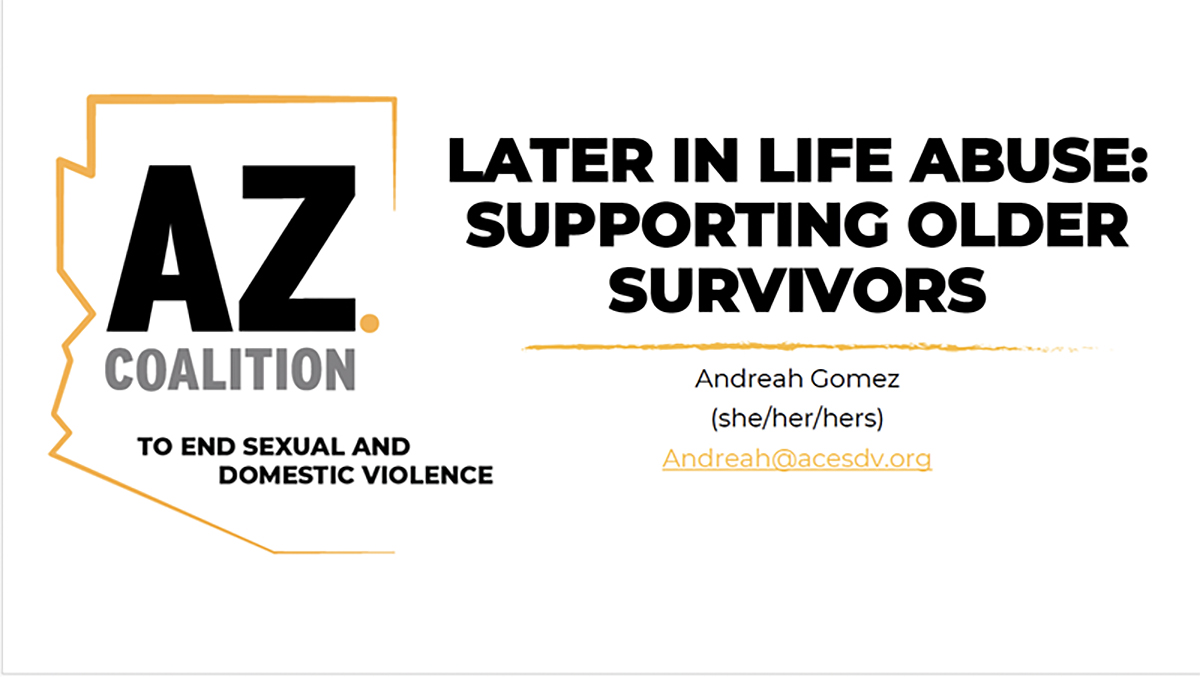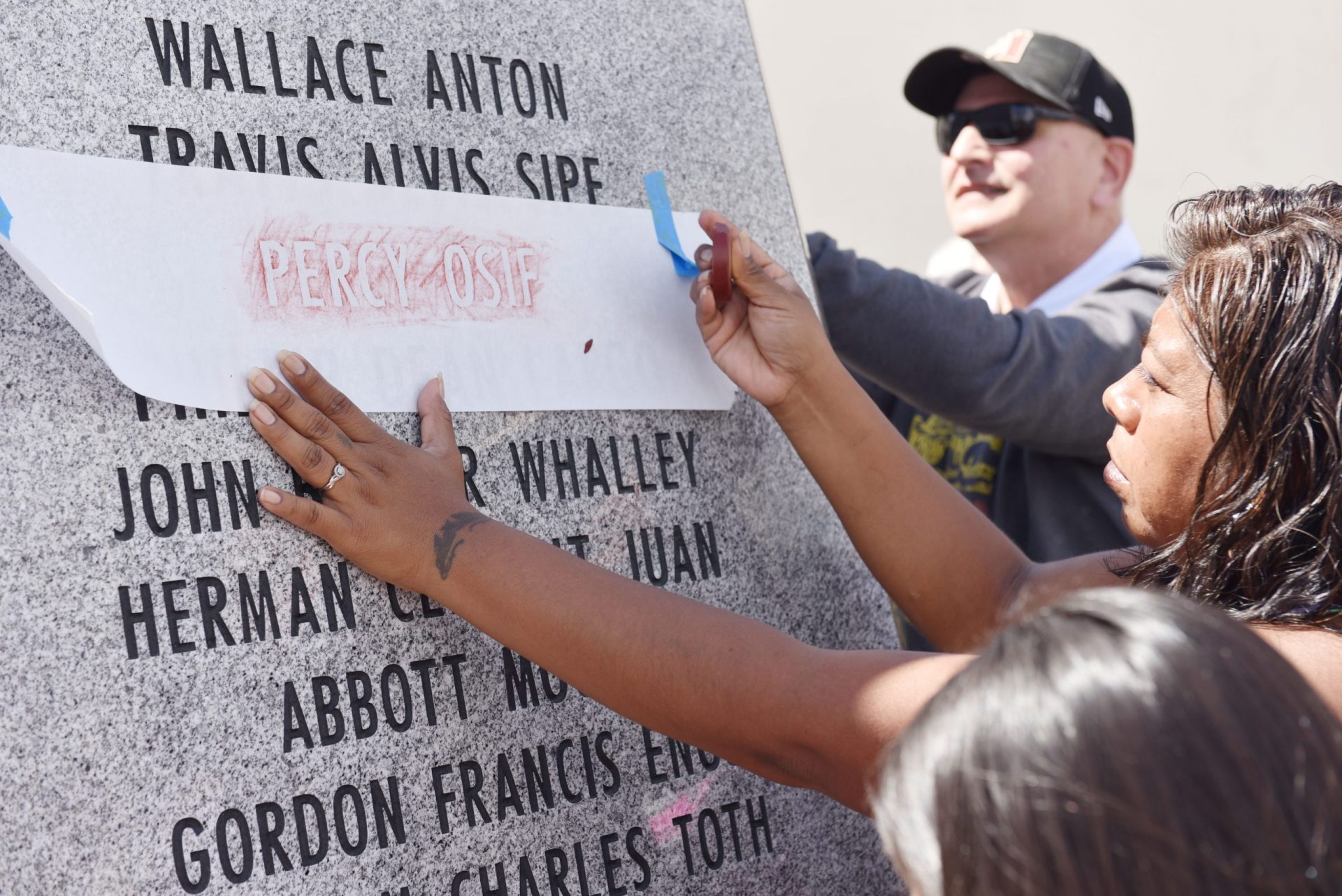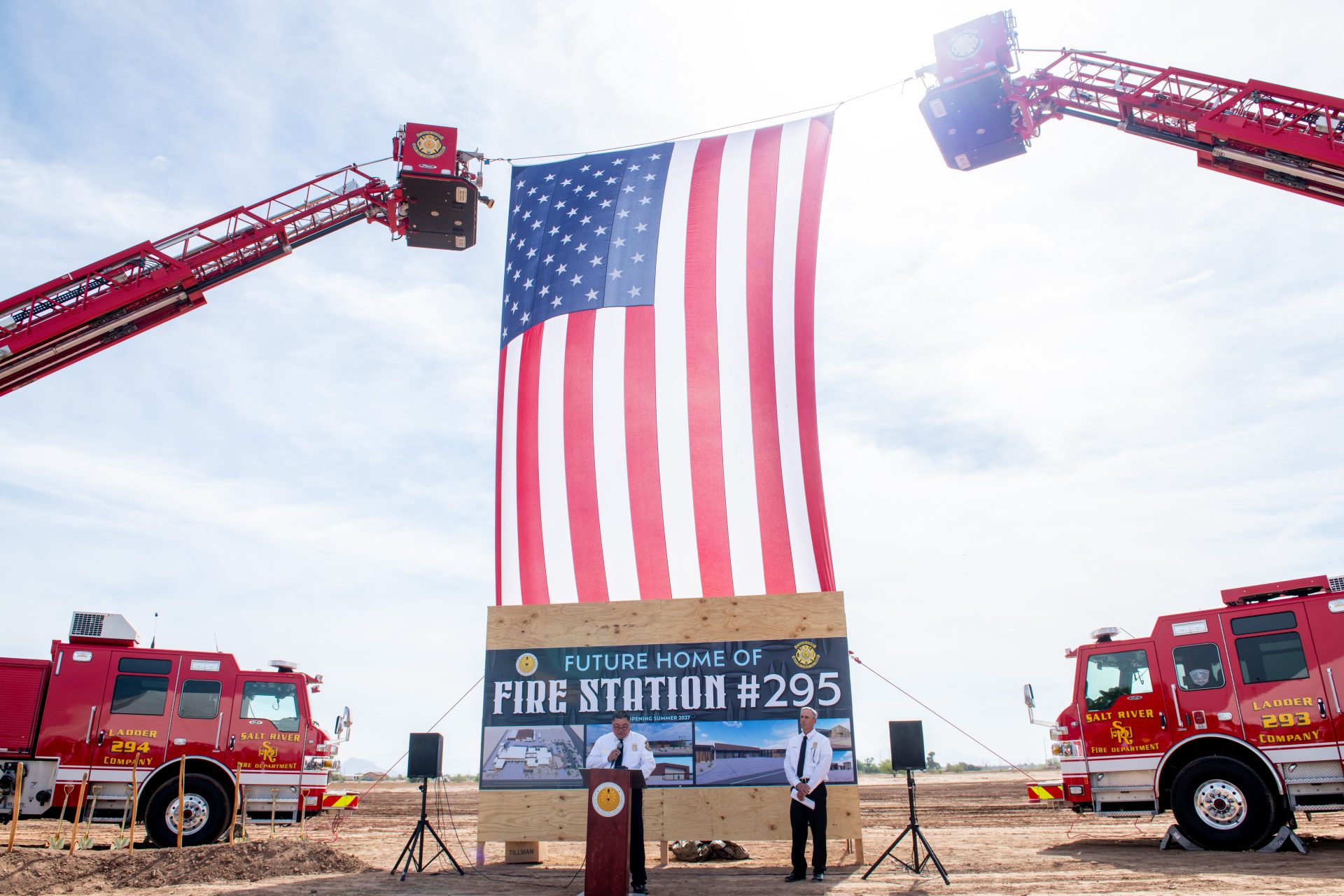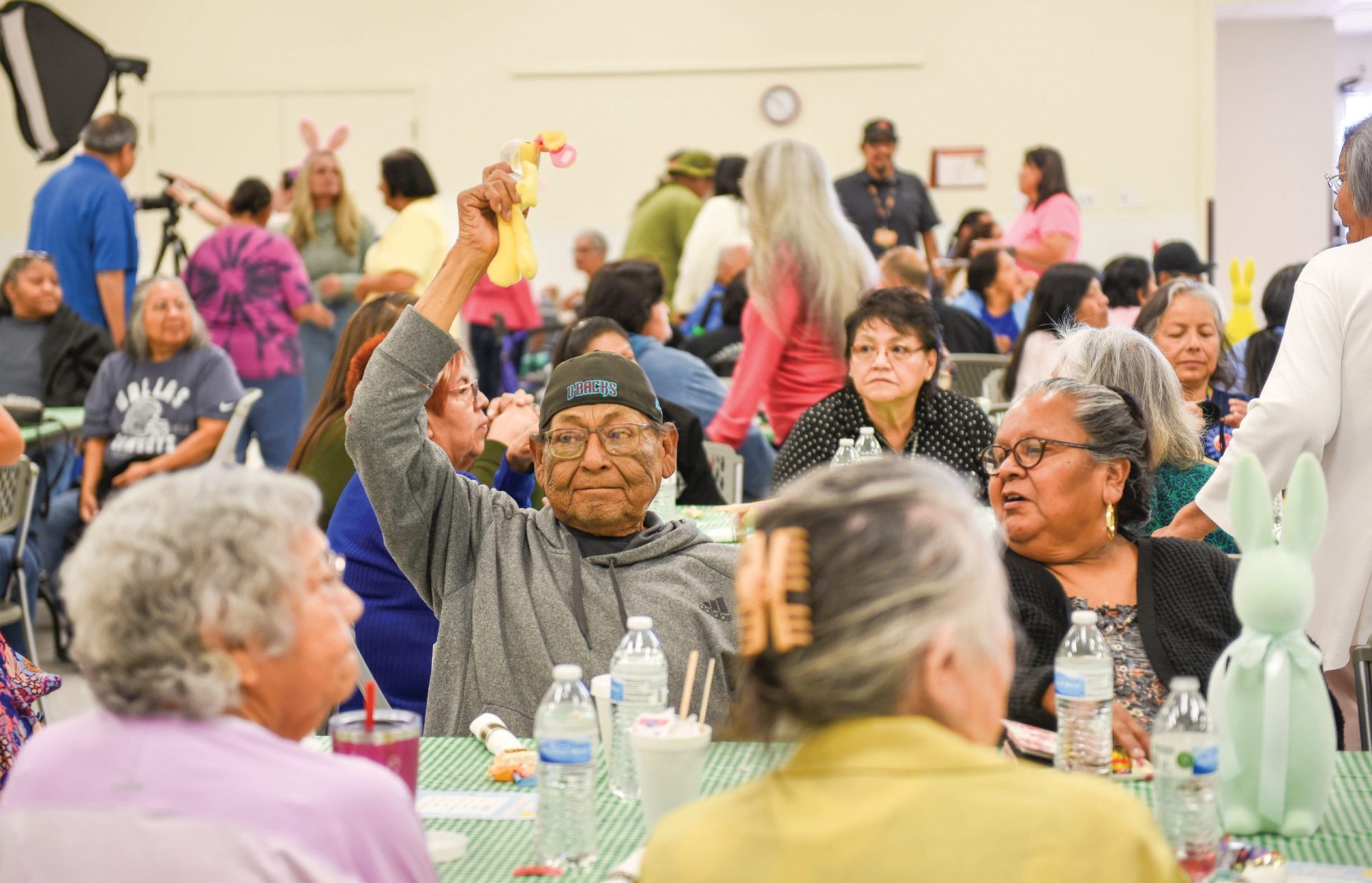VIEWS: 528
July 16, 2025Webinar Reveals Methods To Help Eradicate Adult Abuse
The Arizona Coalition to End Sexual and Domestic Violence (ACESDV) facilitated an online webinar on June 17 for membership and staff from the Salt River Pima-Maricopa Indian Community.
Andreah Gomez (she/her/hers), ACESDV Domestic Violence Response coordinator, hosted the webinar. It detailed a sensitive topic, adult abuse later in life.
Defined as willful abuse, neglect or financial exploitation of an older adult over the age of 50, Gomez highlighted that in some cases, the perpetrator is someone within the family circle. Whether it be a spouse, partner, family member, or caregiver, adult abuse includes sexual, emotional, spiritual as well as stalking.
Throughout her presentation, Gomez provided the Community with impactful and eye-opening statistics. In a study conducted by Maricopa County in 2023, the Department of Economic Security revealed a 20% increase in adult abuse reports in the state. Nearly 18,000 individual reports of adult abuse were submitted to the state.
On the National level, about one in 10 people over the age of 50 have experienced some form of adult abuse. Gomez stated that two-thirds of adult abusers are adult children or spouses, and close family members committed nearly 60% of elder abuse cases.
Unfortunately, there are cases of adult abuse that go unreported. In such cases, the victim may fear the perpetrator, which may prevent them from submitting a report to local authorities. Similarly, after abuse occurs, the victim may begin to self-blame or deny the abuse, which causes mental strife and negatively impacts a healthy lifestyle.
Thankfully, Gomez began detailing the different ways survivors and their families can enact positive change. As a society, we must hold the perpetrator accountable, not the victims. To do this, individuals must avoid victim blaming.
Victim blaming is a hostile act defined when someone incorrectly implies that the victim played an active role in the harmful/traumatic event.
Additionally, taking time out of our lives to understand the different ways we can heal can also be beneficial. By learning how to be present and mindful, we can integrate traumatic memories, Gomez said. Practicing mindfulness can help reduce the severity of trauma by allowing time for individuals to process and find closure with the past.
Gomez provided a quote from Cheryl Richardson, an author of bestselling self-improvement books, to the webinar group: “People start to heal the moment they feel heard.”
She added, “Feeling listened to and understood changes our physiology, being able to articulate a complex feeling. Having our feelings recognized lights up our limbic brain and creates an ‘ah-ha moment’ for us.”
The limbic part of our brain features a group of structures that regulate our emotions, behaviors, motivations, and memory.
Simply put, hearing victims tell their stories while providing a safe space helps eradicate abuse, especially for adults over the age of 50 who may feel that they cannot change.
Providing a shame-free and non-judgmental space takes genuine effort. Gomez stated that she believes while we all can help others, pets can also help engage in positive realities for older adults impacted by abuse.
Gomez stated that our four-legged friends can do more than just fetch and bark at the delivery drivers. Pets constantly create comfort and provide stress relief, thus helping support an individual’s effort to be more mindful.
The Community webinar neared its end as Gomez detailed ways we can love our older adults. “We can listen to them, be proud, patient, and respect them,” she said. Gomez would also encourage webinar attendees to joke around with them and have a laugh.
Gomez ended her webinar with a quote from author Akshay Dubey. “Healing doesn’t mean the damage never existed; it means the damage no longer controls your life.”
If you or someone you know are in need of resources and services, please find the information below.
National Domestic Violence Hotline 1-800-799-7233
Strong Hearts Native Helpline 1-844-762-8483
National Sexual Assault Hotline 1-800-656-4673
ACESDV AZ Map detailing programs/resources by county:







